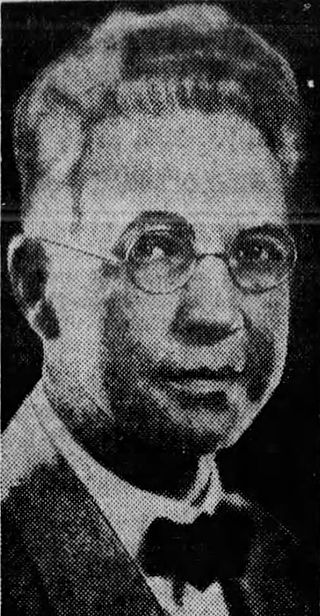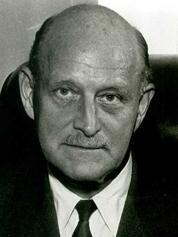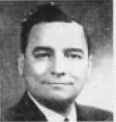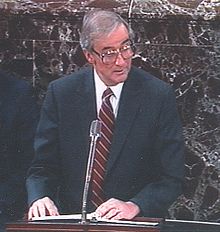In United States jurisdictions, obstruction of justice refers to a number of offenses that involve unduly influencing, impeding, or otherwise interfering with the justice system, especially the legal and procedural tasks of prosecutors, investigators, or other government officials. Common law jurisdictions other than the United States tend to use the wider offense of perverting the course of justice.

Alcee Lamar Hastings was an American politician and former judge from the state of Florida.

Gabriel Thomas Porteous Jr. was a United States district judge of the United States District Court for the Eastern District of Louisiana. He served for sixteen years before being impeached and removed from office in December 2010. He died on November 14, 2021, aged 74.

Harry Eugene Claiborne was a United States district judge of the United States District Court for the District of Nevada from 1978 until his impeachment and removal in 1986. Appointed by President Jimmy Carter in 1978, Claiborne was only the fifth person in United States history to be removed from office through impeachment by the United States Congress and the first since Halsted Ritter in 1936.

Bill Clinton, the 42nd president of the United States, was impeached by the United States House of Representatives of the 105th United States Congress on December 19, 1998. The House adopted two articles of impeachment against Clinton, with the specific charges against Clinton being lying under oath and obstruction of justice. Two other articles had been considered but were rejected by the House vote.

Halsted Lockwood Ritter was a United States district judge of the United States District Court for the Southern District of Florida. He was the thirteenth individual to be impeached by the United States House of Representatives and the fourth individual to be convicted and removed from office in an impeachment trial before the United States Senate. He was also the last federal official to be impeached by the House of Representatives until Harry E. Claiborne, when he was impeached and removed from office by the Senate for tax evasion in 1986.

Robert Wodrow Archbald, known as R. W. Archbald, was a United States circuit judge of the United States Commerce Court, the United States Court of Appeals for the Third Circuit and the United States Circuit Courts for the Third Circuit and previously was a United States district judge of the United States District Court for the Middle District of Pennsylvania. He was the ninth federal official on whom Articles of Impeachment were served, and only the third to be convicted and removed from office.
Nixon v. United States, 506 U.S. 224 (1993), was a United States Supreme Court decision that determined that a question of whether the Senate had properly tried an impeachment was political in nature and could not be resolved in the courts if there was no applicable judicial standard.

The Watergate scandal refers to the burglary and illegal wiretapping of the headquarters of the Democratic National Committee, in the Watergate complex by members of President Richard Nixon's re-election campaign, and the subsequent cover-up of the break-in resulting in Nixon's resignation on August 9, 1974, as well as other abuses of power by the Nixon White House that were discovered during the course of the scandal.

Samuel B. Kent is a former United States district judge of the United States District Court for the Southern District of Texas, whose term ended in resignation in 2009 following charges of sexual abuse.

Neal Brooks Biggers Jr. was a United States district judge of the United States District Court for the Northern District of Mississippi.

Stephen Sanders Chandler Jr. was a United States district judge of the United States District Court for the Western District of Oklahoma.
Robert Smith Vance was a United States circuit judge of the United States Court of Appeals for the Fifth Circuit and later the United States Court of Appeals for the Eleventh Circuit. He was one of three 20th-century United States federal court judges assassinated because of his judicial service.

Norma Holloway Johnson, born Normalie Loyce Holloway, was a former United States district judge who served as the chief judge of the United States District Court for the District of Columbia, and was the first African-American woman to serve as chief judge of that United States district court. Notably, Johnson presided over the grand jury investigation into President Bill Clinton’s affair with Monica Lewinsky.

Alexander Morton Campbell (1907–1968) was an Indiana lawyer who served in the United States Department of Justice as Assistant U.S. Attorney General for the Criminal Division, formally from August 1948 through December 20, 1949, under Tom C. Clark as U.S. Attorney General (1945–49).

In the United States, federal impeachment is the process by which the House of Representatives charges the president, vice president, or another civil federal officer for alleged misconduct. The House can impeach an individual with a simple majority of the present members or other criteria adopted by the House according to Article One, Section 2, Clause 5 of the U.S. Constitution.
The 1965 Oklahoma Supreme Court scandal was a political scandal in the U.S. state of Oklahoma involving judicial misconduct on the Oklahoma Supreme Court. Justice N. S. Corn was convicted in 1964 on federal tax evasion charges. After his conviction, he implicated himself, Samuel Earl Welch, and Napoleon Bonaparte Johnson in accepting bribes to decide cases.













